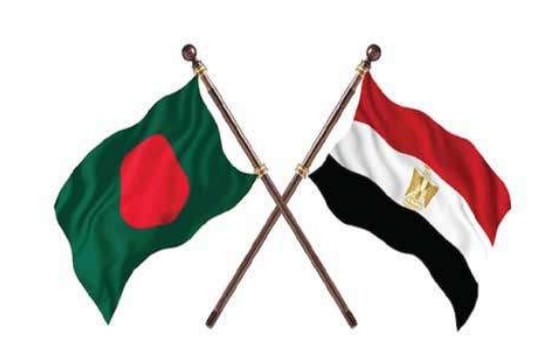The diplomatic relations between Bangladesh and Egypt stand as a testament to a longstanding and amicable association, marked by reciprocal ambassadorial representation in each other’s capitals. H.E. Omar Mohie Eldin Ahmed Fahmy represents Egypt in Dhaka, while H.E. Samina Naz serves as Bangladesh’s ambassador in Egypt. Rooted in a historical backdrop dating back to the medieval era, the ties between the two nations have evolved positively over time. Noteworthy historical exchanges, such as those between Mamluk sultan Barsbay and the Sultan of Bengal, lay the foundation for a relationship that continues to thrive. Recent developments, including Bangladesh’s support during the Yom Kippur War and Egypt’s generous donation of tanks in 1974, underscore the depth of their diplomatic engagement. As active members of the Organisation of Islamic Cooperation and the Islamic Military Coalition, Bangladesh and Egypt share common interests, hinting at a future marked by cordiality and cooperative endeavors.
Country Fact:
Capital: Cairo
Official Language: Arabic
Government: Republic
Legislative Authority: People’s Assembly
Establishment: 3200 BC
The National Day: 23 July
Population: 97,041,072 est.
Time Zone: (UTC + 2)
Currency: Egyptian Pound
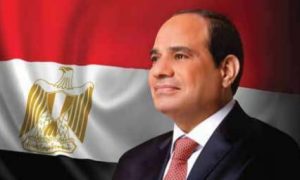
Administrative Division: The Arab Republic of Egypt is administratively divided into 27 governorates. The governorates are either completely urban, or a blend of urban and rural areas.
Cities and Ports: With over 95 million citizens, Egypt is the most populous country in North Africa and the Arab world, the third-most populous in Africa (after Nigeria and Ethiopia), and the fifteenth-most populous in the world. About half of Egypt’s residents live in urban areas, with most spread across the densely populated centres of greater Cairo, Alexandria and other major port cities in the Nile Delta, including Damietta, Suez and Port Said.
Egypt Today:
In the aftermath of the political turmoil since 2011, Egypt has undergone a transformative democratic political transition driven by the aspirations of its people. This period witnessed the drafting and adoption of a progressive constitution in January 2014, with over 20 million Egyptians participating in a historic referendum. The constitution aimed to establish a more inclusive and accountable political system, addressing the shortcomings of previous charters.
 May 2014 marked another historic moment with the election of Abdel Fattah al-Sisi as the new civilian President, who was sworn into office on June 8, 2014. President al-Sisi has played a crucial role in bolstering Egypt’s financial future, combating religious extremism, and providing regional leadership on security issues. His efforts have contributed to much-needed stability and confidence in the country.
May 2014 marked another historic moment with the election of Abdel Fattah al-Sisi as the new civilian President, who was sworn into office on June 8, 2014. President al-Sisi has played a crucial role in bolstering Egypt’s financial future, combating religious extremism, and providing regional leadership on security issues. His efforts have contributed to much-needed stability and confidence in the country.
Economically, Egypt has been actively working to attract new investments and accelerate growth through reforms and modernizations. Key indicators such as Foreign Direct Investment, tourism revenues, and credit ratings have shown positive trends, reflecting a turnaround in Egypt’s economic landscape.
Security progress has been a priority, with Egypt actively confronting radical extremism. The country has been on the front line of a regional war against terrorism, addressing threats from groups like ISIS. The Egyptian military and security forces have taken significant steps to arrest or eliminate terrorists, seize weapons, and destroy smuggling tunnels that supported terrorist activities.
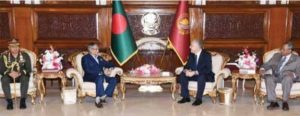
As of December 2023, Abdel Fattah al-Sisi secured a third term as Egypt’s president with a reported 89.6% of the vote. This victory, despite economic challenges and regional risks, reflects ongoing support for President al-Sisi, who positions himself as a stabilizing force in the volatile Middle East. The election turnout, reportedly at 66.8%, demonstrates both domestic and international backing for his leadership, emphasizing stability amid regional turmoil.
Bangladesh and Egypt have maintained significant trade relations, with notable exchanges in 2021 highlighting the economic interactions between the two nations.
Bangladesh-Egypt Trade:
In 2021, Bangladesh exhibited a noteworthy export value of $46.2 million to Egypt. Key products in this trade relationship included Jute Yarn ($13.8M), Non-Knit Women’s Suits ($6.18M), and Knit T-shirts ($5.71M). Over the past 26 years, Bangladesh’s exports to Egypt have experienced a steady annualized growth of 4.67%, escalating from $14.1 million in 1995 to the current $46.2 million.
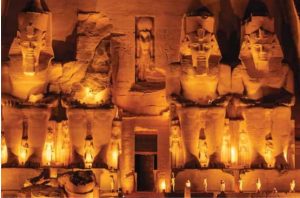
Egypt-Bangladesh Trade:
Conversely, Egypt demonstrated robust exports to Bangladesh in 2021, totaling $193 million. The main products in this trade flow included Petroleum Gas ($102M), Citrus ($43.1M), and Raw Cotton ($18.7M). Over the last 26 years, Egypt’s exports to Bangladesh have surged at an annualized rate of 10.6%, progressing from $14.1 million in 1995 to a substantial $193 million in 2021.
Journey Through Time: Egypt’s Iconic Historical Landmarks and Multifaceted Heritage
Egypt’s historical landscape is a captivating journey through time, narrated by its iconic landmarks that bear witness to the rich tapestry of one of the ancient world’s most legendary civilizations—the ancient Egyptians. From the timeless silhouette of the Pyramids of Giza to the mystique of the Valley of the Kings, these monumental wonders magnetically attract visitors from every corner of the globe.
However, Egypt’s historical allure extends beyond its ancient splendors. The remnants of Roman amphitheaters, the echoes of Greek ports, and the echoes of World War Two battlegrounds collectively portray Egypt’s pivotal role in the annals of international empires and their conflicts, spanning epochs from antiquity to the modern era.
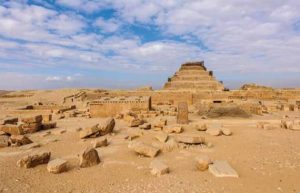
Among the standout destinations that offer an immersive experience into Egypt’s historical narrative are Giza, Abu Simbel, the solemn grounds of the El Alamein Battlefield, the sacred precincts of Dendera, and the revered site of Abydos. Each of these locations unfolds a unique chapter in Egypt’s history, inviting visitors to explore the layers of its past and appreciate the cultural mosaic that has shaped this remarkable nation.
Conclusion and Future Prospects of Bangladesh-Egypt Diplomatic Ties: Embracing a Shared Destiny
The enduring diplomatic relationship between Bangladesh and Egypt stands as a testament to the strength of their historical ties,
In the economic realm, Egypt has actively pursued growth through reforms, attracting foreign investments, and achieving positive indicators in tourism and credit ratings. The country’s proactive stance in addressing security concerns, particularly in the fight against terrorism, reflects a commitment to ensuring peace and stability.
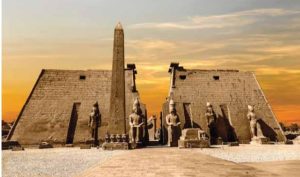
Looking forward, President El-Sisi’s securing of a third term in the 2023 election reinforces the stability sought by Egypt amid economic challenges and regional risks. The significant voter turnout underscores the continued support for his leadership both domestically and internationally.
As Bangladesh and Egypt navigate the complexities of the global landscape, their trade relations have played a crucial role in fostering economic interdependence. The 2021 trade exchanges highlight the importance of bilateral collaboration, with Bangladesh exporting goods worth $46.2 million to Egypt and Egypt reciprocating with exports valued at $193 million.
In conclusion, the diplomatic ties between Bangladesh and Egypt represent a resilient friendship that has withstood the test of time. Both nations are poised to embrace a future marked by increased cooperation, economic growth, and shared endeavors, building upon the solid foundation of historical connections and a commitment to a harmonious international order. As they continue this journey together, the prospects for Bangladesh and Egypt remain promising, reflecting the resilience of their diplomatic bonds and the potential for a shared destiny.
Written by-
AKM Sayedad Hossain
Associate Editor, Diplomats Publication

